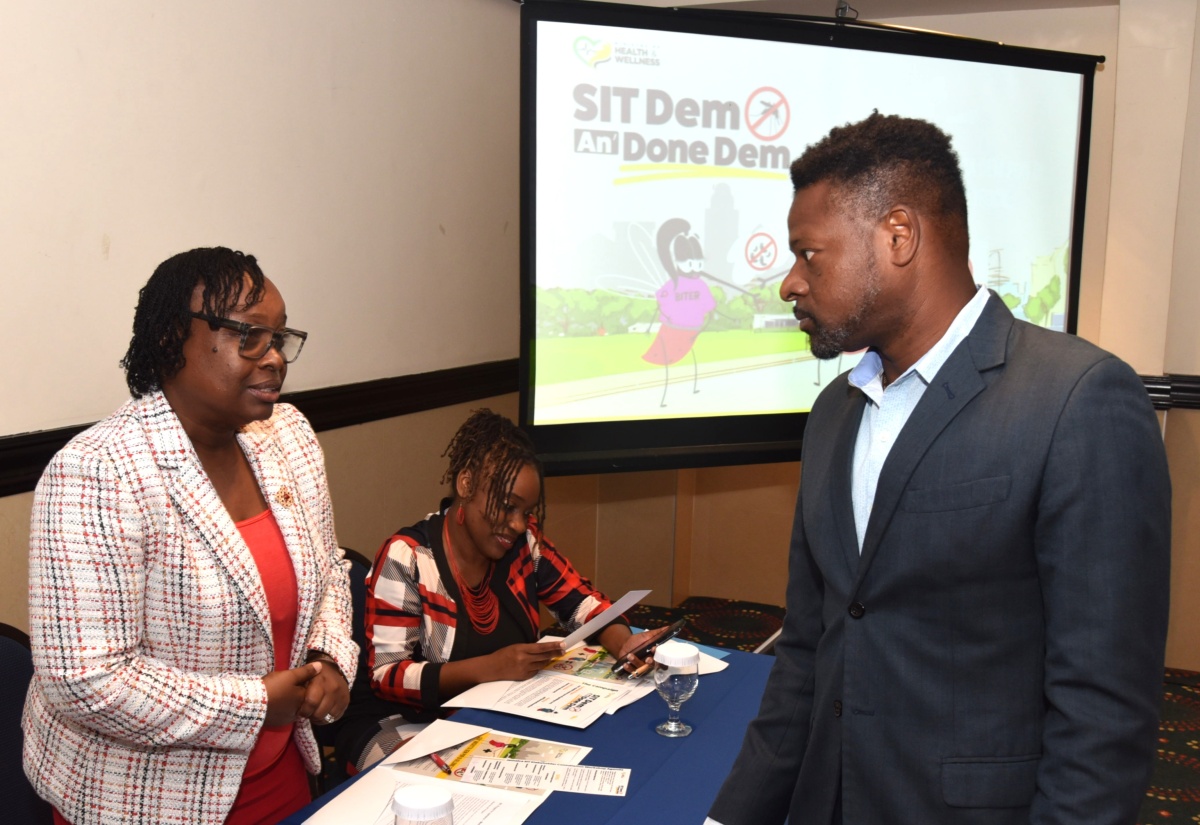Jamaica Piloting Use of Sterile Insect Technique to Combat Mosquito-Borne Diseases
By: , August 17, 2025The Full Story
Jamaica is participating in an International Atomic Energy Agency (IAEA) project to pilot the use of the Sterile Insect Technique (SIT) as a strategy to combat the spread of mosquito-borne diseases such as Dengue and Zika.
Part of the Ministry of Health and Wellness’ Integrated Vector Management (IVM) programme, the initiative involves releasing sterile male mosquitoes into the environment to mate with wild females, thereby reducing the mosquito population by preventing offspring.
The SIT method is a form of biological control that is environmentally friendly.
Addressing a workshop held on August 12 at the Jamaica Pegasus Hotel in New Kingston, Medical Entomologist and National Programme Manager for Vector Control at the Ministry, Sherine Huntley-Jones, said the SIT method is an innovative approach to vector-borne disease control.
“Traditionally we have used insecticides, and we are experiencing an increase in resistance. We have to come up with new tools that are going to be effective,” she said.
The pilot project will involve the mass rearing of the target pest, sterilising them using radiation and then systematically releasing the sterile males across specific areas from the air to mate with females.
A multipurpose gamma irradiation machine, located at the International Centre for Environmental and Nuclear Sciences (ICENS) on the Mona campus of the University of the West Indies (UWI), will be utilised in combatting the disease-carrying Aedes aegypti mosquito.
Senior Research Scientist at ICENS, Johann Antoine, said the gamma irradiator was brought to Jamaica “to address certain issues of national development one of them being the sterilising techniques and your efforts to reduce disease transmission.”
The state-of-the-art machine was procured and installed through support from IAEA.
The SIT pilot involves collaboration with the Scientific Research Council (SRC) and the Planning Institute of Jamaica (PIOJ).
The objective of the workshop was to introduce stakeholders to the project and its expected impact on Jamaica; explain the science behind SIT and its benefits to health, the environment and communities; to gather feedback to inform implementation and communication strategies; as well as to address questions or concerns and build public trust in the project.





